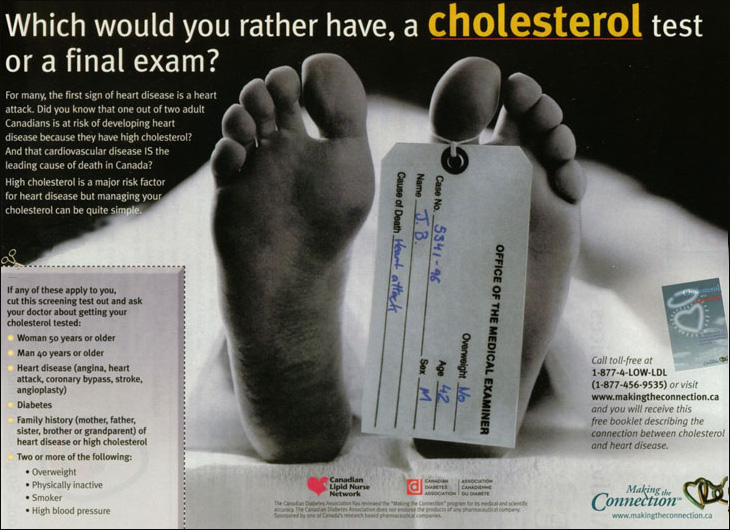3 Easy Ways to Strengthen Your Heart and Add Years to Your Life
Let’s start with the first Good News: Alcohol is Good for the Heart
Dr Malcolm Kendrick is a Scottish physician who has written extensively about heart disease and its causes. In a recent post, he summed up the results of a recent British Medical Journal study this way:
Increased risk of fatal CVD vs. moderate drinking
- Non-drinker = 1.32 (32% increased risk)
- Former drinker = 1.44 (44% increased risk)
Increased risk of all-cause mortality vs. moderate drinking
- Non-drinker = 1.24 (24% increased risk)
- Former drinker = 1.38 (38% increased risk)
Kendrick’s conclusion? ‘I recommended that, from a cardiovascular health point of view, those who do not drink alcohol should start.’
More Good News: Walking Beats Drugs by a Mile
Just put this question into your browser: ‘regular exercise adds 3-5 years to your life’, and you’ll find lots of good news stories in the media. This one is from the National Cancer Institute in the USA: ‘NIH study finds leisure-time physical activity extends life expectancy as much as 4.5 years.’
Some heart drugs save lives and, as soon as they do, public health experts push doctors to prescribe them for heart disease prevention. Drug companies love this because the market for prevention is many times bigger than the market for saving lives. Statins are the most recent example, touted as miracle drugs that everybody benefits from.
Do Statins Extend Life Expectancy?
The BMJ published a systematic literature review in order to determine the average postponement of death in statin trials, based on the results of 6 studies for primary prevention and 5 for secondary prevention with a follow-up between 2.0 and 6 years. The outcome? ‘The median postponement of death for primary and secondary prevention trials was 3.2 and 4.1 days, respectively.’ Yes, days not years.
The researchers’ conclusions: ‘Statin treatment results in a surprisingly small average gain in overall survival within the trials’ running time. For patients whose life expectancy is limited or who have adverse effects of treatment, withholding statin therapy should be considered.’ Dr Kendrick interprets these and other results in more detail HERE, but it’s clear that walking is a more effective option that costs less and has no bad side effects.
Even More Good News: You can Stop Worrying about HDL and LDL
And about cholesterol, it turns out. A New York Times article headed Experts Reshape Treatment Guide for Cholesterol quotes cardiologists who formulate treatment guidelines in the USA. Dr. Neil J. Stone, a professor of preventive cardiology, said his group ‘could not come up with solid evidence for targets [for meeting HDL and LDL].’
Dr Steven Nissen is the chief of cardiology at the Cleveland Clinic, the leading heart clinic in the USA. He said: ‘The science was never there for the LDL targets. Past committees made them up out of thin air.’ No, I didn’t make that quote up – check the link above. The NYT article adds that the Department of Veterans Affairs, the largest integrated health care system in America, came to the same conclusion and dropped its LDL targets a year before.
Yet more Good News: You can Stop worrying about saturated Fats
I wrote a long post about the cholesterol myth a few years ago, so it’s good to see leading cardiologists finally coming around to conclusions that’ve been obvious for many years: the French Paradox is not a paradox at all: the French have half the rate of heart disease as Americans, Brits and Aussies do, and the people in the Perigord region in south-western France have half the rate of heart disease as France as a whole. They also have a diet loaded with saturated fats.
How did saturated fats get such a bad rap for so many years? I have no idea. A recent meta-analysis of 80 studies and 27 trials with 500,000 subjects found no concrete evidence linking consumption of saturated fats to increased risk for heart disease. The study was published in the Annals of Internal Medicine, and was funded by the British Heart Foundation. Read the short story HERE.
The Bad News: AHA Doubles the Target Population for Statins
The American Heart Association changed its treatment guidelines late in 2013, and effectively doubled the target market for statins. They also changed the way they were to be prescribed. As Dr Kendrick says, the question is no longer: should you take statin drugs but: when should you start taking them? More here: US heart panel recommends statins for a third of US adults. Remember that drug companies in the USA are allowed to advertise on TV.
The AHA’s new guidelines prompted two cardiologists to write an op-ed piece in the New York Times under the heading Don’t Give More Patients Statins. Why the plea? ‘This announcement is not a result of a sudden epidemic of heart disease,’ say Drs Abramson and Redberg, ‘nor is it based on new data showing the benefits of lower cholesterol. Instead, it is a consequence of simply expanding the definition of who should take the drugs — a decision that will benefit the pharmaceutical industry more than anyone else.’
Donald Trump is Right: the Media tells Big Lies
Fast-forward to March 2017, and a BBC headline screams, ‘Huge advance’ in fighting world’s biggest killer.’ The piece goes on to say: ‘An innovative new drug can prevent heart attacks and strokes by cutting bad cholesterol to unprecedented levels, say doctors. The results of the large international trial means the drug could soon be used by millions … Bad cholesterol is the villain in the heart world.’
Yes, reporters are still sprouting this nonsense, and cardiologists are still trying to prevent heart disease by reducing LDL cholesterol, and I bet your local doctor is still prescribing statins even if the gloss has come off them. That’s why we have a new, better, shinier drug: evolocumab, also known as Repatha or a PCSK9- inhibitor. PCSK9 is a regulatory protein which binds to LDL receptors, and can limit the ability of the liver to remove LDL cholesterol from the bloodstream. PCSK9 inhibitors improve the liver’s ability to remove LDL cholesterol and reduce LDL blood levels.
Show me the Data
‘There was a reported reduction in non-fatal heart attacks and stroke,’ says Dr Kendrick in his analysis of the study, ‘and less need for revascularization procedures e.g. PCI/stents.’ Then we come to the downside:
- The total number of deaths from cardiovascular disease in the Repatha group was 251
- The total number of deaths from cardiovascular disease in the placebo group was 240
- The total number of overall deaths in the Repatha group was 444
- The total number of overall deaths in the placebo group was 426.
The numbers tell the story, but there are more issues: The full data are not yet published, and the study was terminated at 2.2 years when it should’ve run for 4. This is standard Operating Procedure for drug-company-sponsored trials, with the official line trotted out that the trial was stopped early to make the drug’s enormous benefits available to more people sooner. Kendrick asks: ‘Were the mortality curves heading rapidly in the wrong direction?’
Huge Advance or Colossal Failure?
Just a few months before the BBC’s good news headline, we saw a different one in at cardiobrief.org: ‘Pfizer Ends Development Of Its PCSK9 Inhibitor –Immune issues and diminishing efficacy doomed the new drug. Pfizer announced on Tuesday that it was discontinuing development of bococizumab, its cholesterol-lowering PCSK9 inhibitor under development.’
It’s almost unheard of for a major drug company to pull the plug on a new drug projected to bring in a billion dollars in revenue, and to halt two ongoing studies: the 17,000 subject SPIRE 1 trial and the 10,000 subject SPIRE 2 trial. Bloomberg gives us more insight saying Pfizer’s data ‘showed a “substantial” lessening of the drug’s impact on patients’ LDL cholesterol at one year.’ That’s a big clue to the reason the Repatha study was cut short.
In Australia, Repatha costs up to $900 a month for fortnightly injections, and is prescribed to people who can’t tolerate statins. Drug maker Amgen has applied for the PBS to pay the high ticket price (you and me, in other words).The drug’s current approval is restricted to patients with an inherited form of high cholesterol and those with a previous diagnosis of heart attack, stroke or angina. History shows that these restrictions will be removed over time, as drug company-sponsored trials show the drug’s benefits for an ever broader population.
Bad Cholesterol, Bad Science or Bad Advice?
So how come drug makers are still focused on lowering cholesterol, given that there’s no evidence that lowering cholesterol lowers the risk of heart disease? And how come government medical advisors still approve these drugs, given that no trials have yet shown that they prolong the lives of people at risk of heart disease? You thought medical research was based on science, right?
Think again: Dr Daniel J. Rader, one of the cardiologists cited in the New York Times article, above said that many cardiologists will continue to focus on the old LDL target because ‘they are used to it and believe in it.’ Dr Steven Nissen at the Cleveland Clinic said, ‘I suspect it will take years for doctors to change their practices.’ Yes, doctors are creatures of habit like the rest of us, and most don’t read drug studies because they get their info from drug company reps.
The Bottom Line
Unless you have a diagnosed heart condition, the obvious thing to do is to go for a walk every day, in the sunshine, and drink a glass or two of red wine with your lunch or dinner. We talked about the benefits of exercise above, and recently Vitamin D deficiency has turned out to be a major risk factor for heart failure, while the antioxidants in red wine improve cardiovascular function. Easy enough?
Kim



